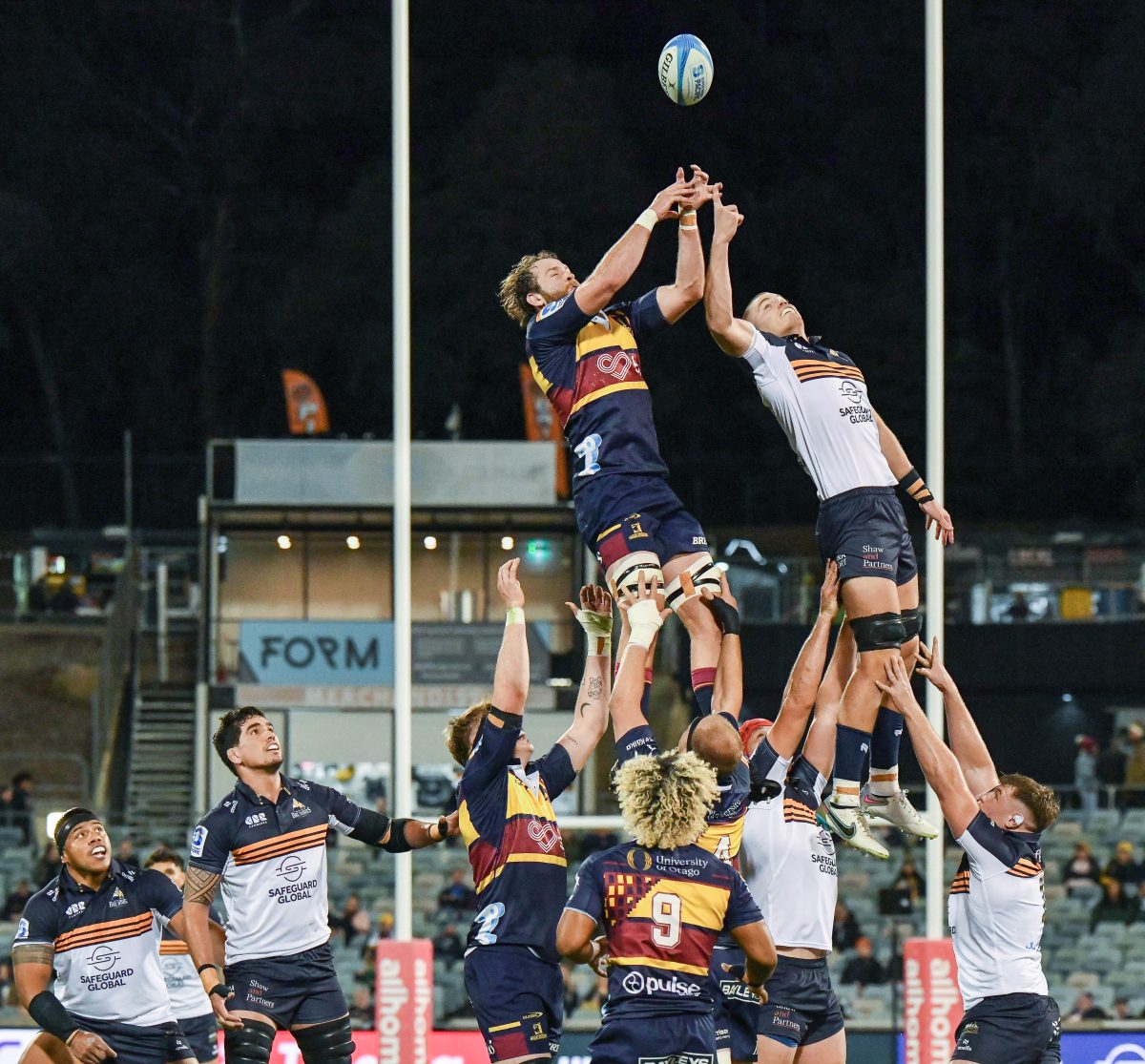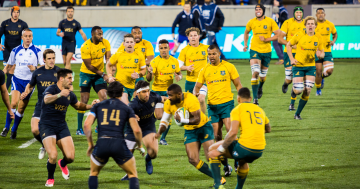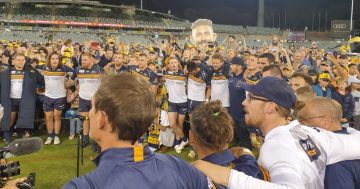
The Brumbies may be high-flying, but World Cup organisers are happy to snub Canberra for more money. Photo: Jayzie Photography.
Canberra should not be missing out on being a part of the Rugby World Cup.
It hosts the country’s leading franchise, which supplies a key portion of the Wallabies squad. It is also among the three jurisdictions in the country where rugby is a code of substance.
Perth and Melbourne may be able to fill stadiums with fans of elite sport, but rugby is not a game played at a high level or with comparable grassroots participation in these AFL states.
At least Townsville and Newcastle are in rugby states but they are not in Canberra’s league.
But don’t blame the ACT Government for not putting enough money on the table to attract four low-tier games.
Hell, Rugby Australia should pay the ACT for the privilege of hosting these minnows.
But sentiment counts for nothing in this modern era of professionalism, where sport is supposedly run as a commercial operation.
Except that it’s not.
While grassroots sport struggle for grounds and facilities, and parents pay through the nose to give their kids a game on a Saturday, Big Sport are the perpetual rent seekers exploiting the nation’s love for watching people run around a paddock kicking and passing a ball.
They negotiate multi-million dollar TV rights and player salaries and charge exorbitant ticket prices, posing as high-flying commercial enterprises, then put their hands out for taxpayer support and lobby governments to build state-of-the-art stadiums without wanting to have any skin in the game themselves.
Nobody can say the ACT Government doesn’t support sport in this town. It built a $12 million media centre at Manuka to attract international cricket. And the main sporting franchises would not exist without ACT Government support.
When Canberra United was in trouble last year it was the government everybody looked to.
There would not be an AFL presence in Canberra without the multi-million dollar deal with the Giants, something that rankles in some quarters.
But at least AFL supporters fill Manuka Oval while the Brumbies struggle to attract 10,000 fans to a game in a winning season. Such is the decline of the game they play in heaven.
That’s a product of the whistle-happy old boys who run the game and make its arcane laws, and TV rights decisions that hide Super Rugby away on pay TV or late at night on a free station
In fact, Rugby Australia’s record has been as bad as the Wallabies in recent years.
But it’s not just rugby.
Big Sport, in general, has no shame in pulling on the public purse at a time when budgets everywhere are under pressure and households are reeling from a cost-of-living crisis.
In the week that Canberra’s World Cup bid was rejected, the ACT Government announced it was pouring $227 million into the health system to keep hospitals to meet surging demand
One could argue that the millions given to the big franchises would be better spent on grassroots participation in all sports, including emerging ones, that would have greater public health benefits and keep people out of hospital.
At present Big Sport seems more a vehicle for gambling and excessive alcohol consumption, something a gutless Federal Government won’t confront.
Queensland is in diabolical trouble with its finances only seven years away from the Brisbane Olympics and the construction timetable seems up in the air.
What odds there will be a call for a Commonwealth bailout? Because the Olympics are too big to bail on the way Victoria walked away from the Commonwealth Games.
The demands of the modern sporting festival, particularly the Olympics, are becoming a curse for governments.
Canberrans love their sport, and the national capital should have its national franchises and international games. However, the government should not invest in an event without expecting a return.
Bread and circuses kept the mob happy in Rome for a time, but in a world of compounding crises, governments could do well to review their priorities.





















